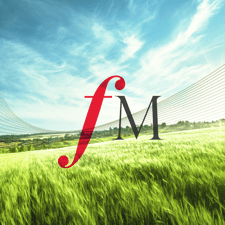The Full Works Concert: Tuesday 17 February 2015, 8pm
Grieg, Haydn, Elgar and Schubert are among the composers in tonight's concert Hall of Fame favourites.
For his Introduction and Allegro for Strings - which kicks off tonight’s concert – Elgar drew upon material from numerous notebooks, which he kept with him at all times. Four years previously, during a bracing walk along the Cardiganshire coast, he had heard a distant choir, and had stashed the idea away for a possible ‘Welsh Rhapsody’ of some sort. In the end, the Welsh piece never came, so he borrowed the tune for this work, which features both a string quartet and a string orchestra.
Many a TV advertisement has used the opening movement, Morning from Grieg’s Peer Gynt Suite No.1 to create the right mood. The fourth movement depicting life In the Hall of the Mountain King, meanwhile, will forever be remembered as the Alton Towers theme tune. Grieg, however, had very different ideas at the forefront of his mind when he composed this glorious music. He had been asked by the playwright Henrik Ibsen to set to music his quintessentially Scandinavian play Peer Gynt. The composer responded by creating a collection of tableaux, some of which were later formed into two separate suites. He didn’t have much faith in them, feeling under pressure from Ibsen to come up with the melodies as quickly as possible, but they were received with huge enthusiasm by the Norwegian audiences of his day.
Haydn's Trumpet Concerto in E flat major was written in 1796 for the composer's long-time friend Anton Weidinger. Weidinger developed a keyed trumpet which could play chromatically throughout its entire range. So Haydn's concerto included melodies in the previously unreachable middle and lower register, exploiting the capabilities of the new instrument.
Schubert’s Symphony No.9 was referred to in his own letters as ‘a grand symphony’, and concert-goers tend to agree that it is almost an hour of pure musical majesty. It was written just three years before the composer died, sketched over what must have felt like almost a born-again summer. His ill-health had suddenly and unexpectedly gone into remission; throughout 1825, when the Great was written, Schubert appeared to be completely well. Cue the huge, grand symphony, full of fresh life – arguably more powerful than any of his others. Here was a man who, sadly wrongly, thought he was cured. The fourth movement Allegro vivace is simply breathtaking, in the right hands.
Edward Elgar: Introduction and Allegro for Strings
John Eliot Gardiner conducts the Vienna Philharmonic Orchestra
Edvard Grieg: Peer Gynt Suite No.1
Sakari Oramo conducts the City of Birmingham Symphony Orchestra
Joseph Haydn: Trumpet Concerto in E-flat major
Trumpet: Jurgen Schuster
Helmut Muller-Bruhl conducts the Cologne Chamber Orchestra
Franz Schubert: Symphony No.9 in C major (‘The Great’)
Simon Rattle conducts the Berlin Philharmonic Orchestra











